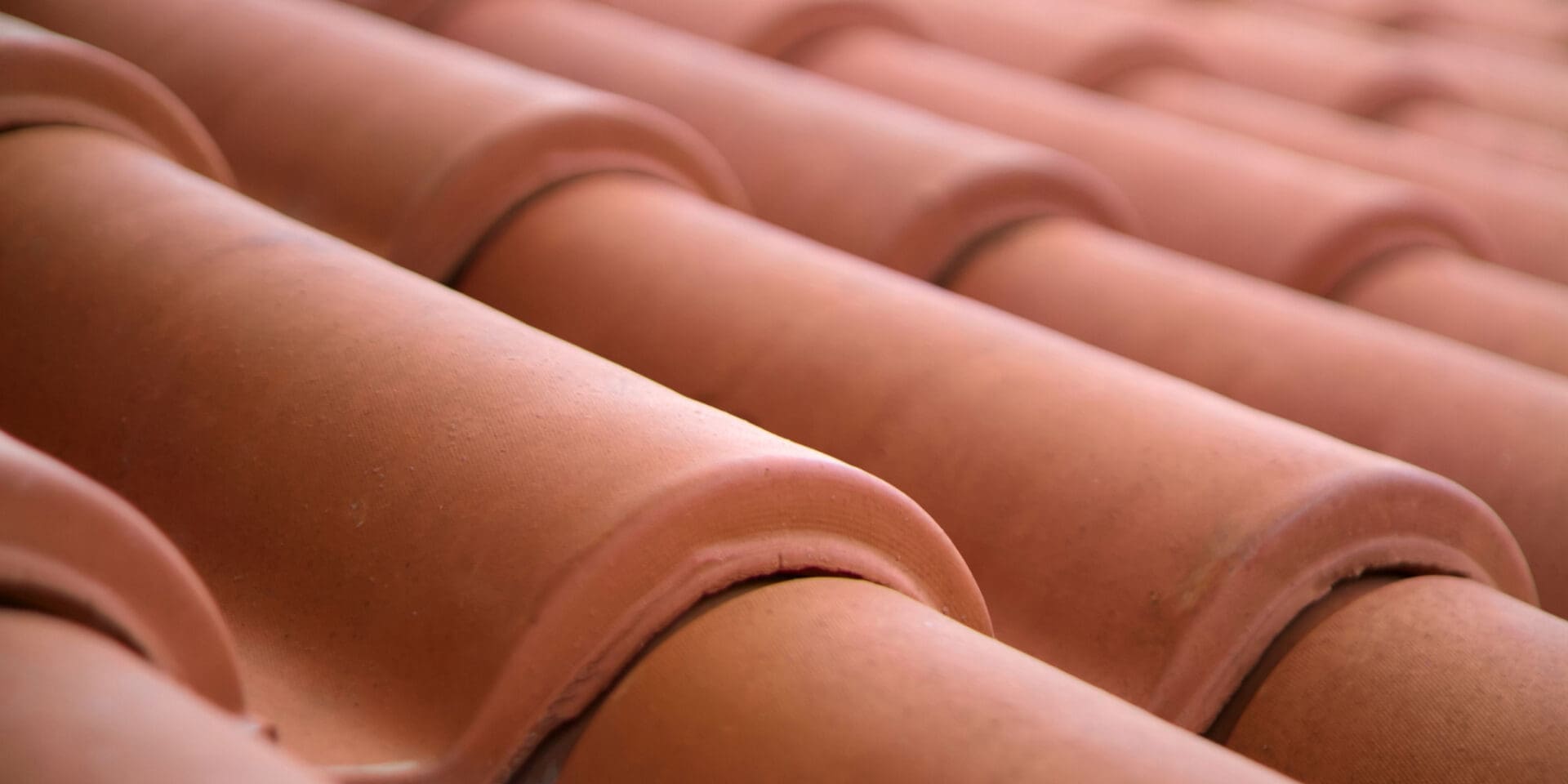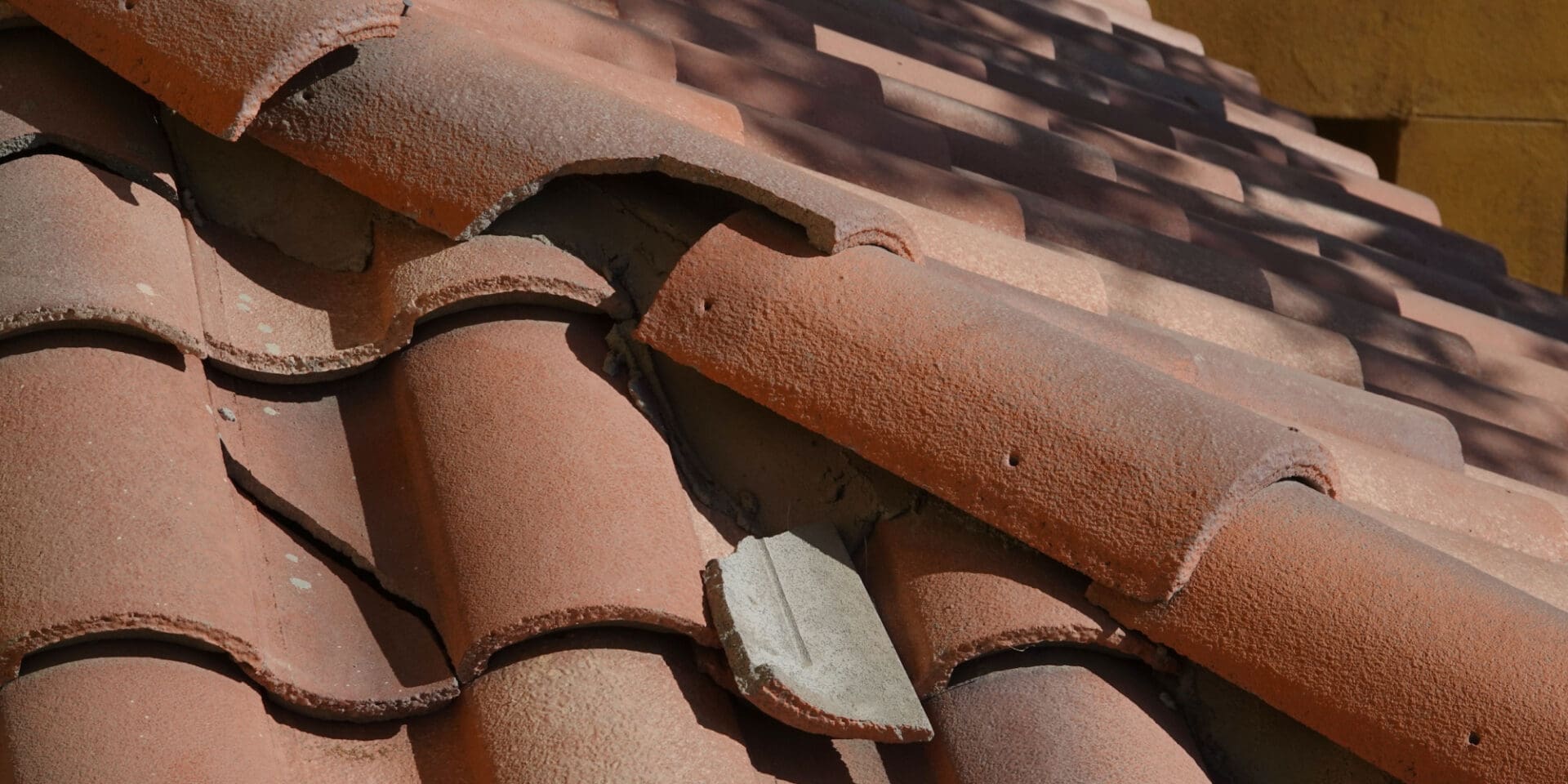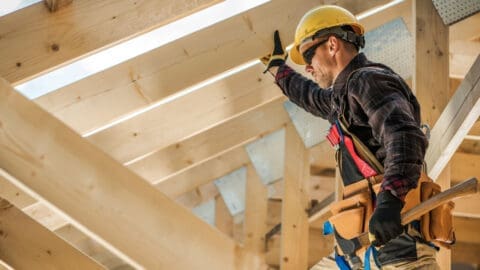Clay tiles are some of Florida’s favorite luxury roofing materials. In fact, Florida was the first place in the United States to get Spanish tile roofs. So if you’re considering continuing the local tradition of getting a clay tile roof, you’re in very good company!
But no roofing material is perfect. And the truth is that getting a clay tile roof isn’t for everyone. We’re John Hogan Roofing, and today we want to use our 30+ years of local roofing experience to help you decide if clay tile roofing is right for you. To answer that question, we’re starting with the basics!
How Does a Clay Tile Roof Work?

Many homeowners have questions about how tile roofing works. On the surface, it can seem hard to believe that tiles are effective at keeping water outside of your home. But the truth is that clay tile roofs offer some of the best protection on the market.
The specifics of how tile roofs work can vary on the tile since different styles of clay tiles will move water off your roof in different ways. But the core concept is that the tiles are layered on top of each other so that water runs from one tile to the next until it runs off the side and away from your home.
Of course, with Florida’s hurricane-force winds, that wouldn’t be enough to keep your roof decking totally dry with winds whipping water beneath your shingles. That’s why contractors also install a water-resistant underlayment beneath your tiles and on top of your decking. This way, any water that makes it past your tiles will be stopped by a layer of waterproof protection.
All of this comes together to create a roofing system that can stand up to Florida’s unpredictable weather. To demonstrate that, let’s look at some of the benefits that come with clay tile roofing.
Pros of Getting a Clay Tile Roof
Clay tile roofs have a history that goes back thousands of years, and that’s because they offer great protection. Let’s talk about some of the features you can expect to enjoy with your new roof!
Long-term Roofing Material
Asphalt shingles are the most common residential roofing material in North America, and they can offer about 20 years of protection. But a clay tile roof is a different breed entirely. In fact, clay tile roofs can last for centuries with proper maintenance and repairs. This usually means having the tiles cleaned and occasionally replacing a broken or chipped tile.
For this reason, clay tile roofing is a great investment for homeowners who want a roof that won’t require a lot of their time and money over the years.
Beautiful Aesthetics
Sometimes you have to choose between form and function. But this is not the case with clay tiles. Available in a wide variety of styles (like Spanish, French, barrel, etc.), clay tiles offer unmatched opportunities for customization. In addition to choosing between various styles, you can also choose the pattern that your tiles are arranged in. This gives you the chance to create unique, visually stimulating patterns on your roof.
In these ways, clay tile roofs can go a long way in generating curb appeal for your home. Coupled with their durability, this makes clay tile roofs perfect for both long-term homeowners and people who are looking to sell in the next few years.
Comprehensive Protection Against Florida’s Weather
In Florida, tropical storms and hurricanes are just a fact of life. Naturally, local homeowners want roofs that will protect against high winds, heavy rains, and all the other inclement weather phenomena that Florida is famous for.
The good news is that clay tile roofing may be the best option on the market for standing up to Florida’s weather.
Some of the ways that clay tile roofs resist Florida’s harsh weather include:
- High wind resistance, including against wind speeds of up to 150 miles per hour
- Unbeatable fire resistance with a Class A fire rating
- Immune to the rot that destroys shingle roofs and highly resistant to pest infestations
- Reflective properties that help keep your home cool
In every area, clay tile roof proves itself to be perfectly suited to the needs of Florida’s homeowners. But these roofing materials aren’t perfect, and they certainly have their own cons!
Cons of a Clay Tile Roof

Just like every homeowner is different, the right roofing material for a home depends a lot on the particulars of the situation. To help see if clay tile roofing is right for you, let’s look at some of the downsides to this luxury roofing material.
High Roofing Costs
From material prices to labor costs, clay tile roofs are anything but cheap. This is because the materials and time required to make clay tiles increases the price, as does the time and experience it takes to install a new tile roof.
The specifics of how much a new clay tile roof will cost you can be hard to pin down. However, tile roofs can easily cost $30,000 or more depending on the specifics of your roof, so it’s important to make sure you have a realistic understanding of the budget required to get a new tile roof.
Low Impact Resistance
While clay tile roofs offer protection in a lot of ways, they are surprisingly fragile. This means that if storm debris (like tree branches) strikes your roof, it could cause one or more of your tiles to shatter.
The good news is that replacing an individual tile or two is a fairly simple and inexpensive repair. But it’s also an extremely important repair that can’t be put off—if you wait to have broken tiles replaced, it could lead to a failure with your water-resistant underlayment, which could put your entire roofing system in jeopardy.
Heavy Roofing Materials
Part of what makes clay tiles so resistant to Florida’s extreme weather is their weight, which can be over 1,000 pounds per 100 square feet of roofing. But while this helps them withstand high winds, it also limits the number of houses that can safely have a tile roof.
If your structure can’t support this weight, then installing a tile roof on your home could cause serious damage. The good news is that experienced roofing contractors should be able to install additional decking to support this weight. But bear in mind that this will likely increase your total roofing costs even further.
Clay Tile Roof Pros and Cons Video
Get Started on Your New Clay Tile Roof
If you’re interested in learning more about your options for a clay tile roof, John Hogan Roofing is ready to help. All you have to do to get started is schedule your free roofing estimate. Then one of our friendly, professional roofing experts will come out and conduct a brief roof inspection and use that information to prepare you a personalized estimate that’s custom-tailored to your needs and your roof.
We know that there is no shortage of people claiming to be tile roof contractors in Florida. But we also know that we have an unbeatable track record of making our customers happy, as evidenced by our local roofing reviews.
With over 30 years of clay tile roofing experience, we know how to install a roof that you’ll love. Give us a chance and see why our experience, honesty, and professionalism have kept us around for all these years!
HAVE THE WORK COMPLETED RIGHT THE FIRST TIME
You May Also Like:
A Homeowner’s Guide to the Florida PACE Program for Roof Replacement
In Florida, a strong, reliable roof isn’t a luxury—it’s a necessity. But with the high cost of replacement, many homeowners are forced to delay this critical work, putting their homes at risk. While options like home equity loans or personal loans exist, there is another powerful financing tool designed specifically for Florida homeowners: the PACE…
Read MoreBenefits of Integrating Solar Panels with Your Roof in Florida
In the Sunshine State, it’s no secret that the sun shines bright nearly all year long. Florida is not only a paradise for beach lovers but also an ideal location for harnessing solar energy. If you’re a homeowner in Florida, you’ve probably considered integrating solar panels into your home, especially as the state continues to…
Read More15 Crucial Questions to Ask Before Hiring a Roofing Contractor in Florida
In Florida, where hurricanes, heavy rain, and intense sunshine are part of everyday life, your roof is more than just a cover — it’s your home’s first line of defense. So, when it comes time for a roof repair or full replacement, hiring the right roofing contractor isn’t just important — it’s essential. Whether you’re…
Read More



